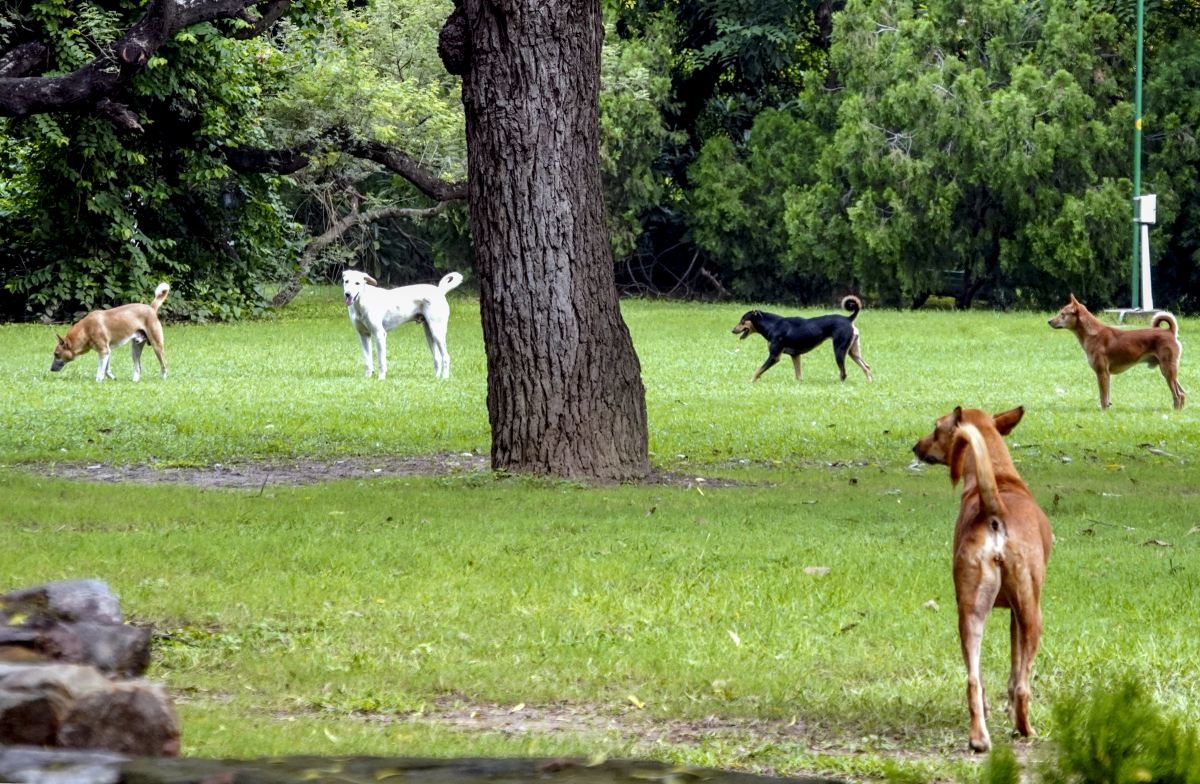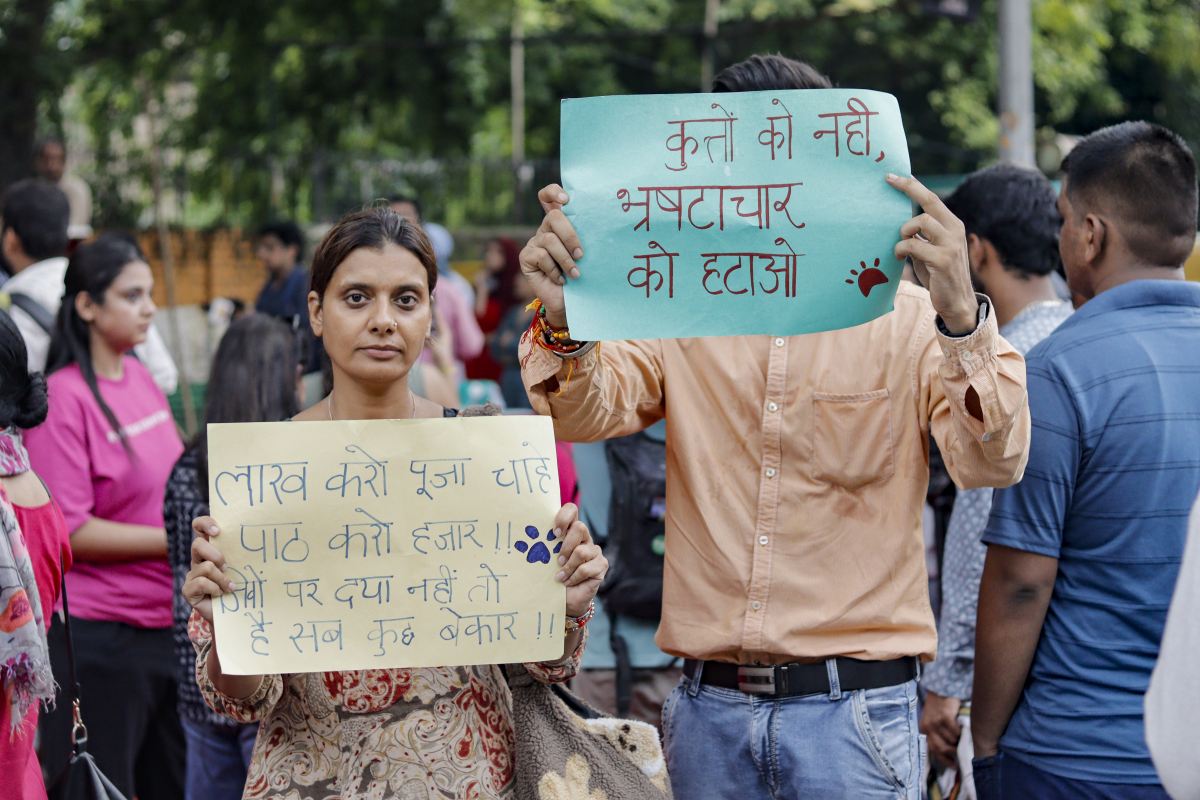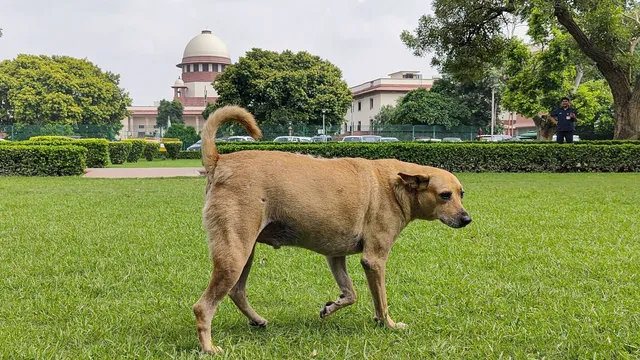- By Raghav Gupta
- Wed, 27 Aug 2025 07:35 PM (IST)
- Source:JNM
The bond between dogs and humans has existed for thousands of years across multiple civilisations in the world. Dogs have been companions, hunters, pets and even pests across different eras. Dogs are most well known as pets but historically they were used as guards and hunting companions due to their exceptionally sharp senses and loyalty to their masters. In times of natural disasters and wars, stray dogs also played the role of pests that preyed on human food stockpiles. But ultimately dogs have come to earn the title of “man’s best friend”. To honour this relationship, the world celebrates the International Dog Day on August 26 every year.
International Dog Day was first celebrated in 2004, by the prominent animal and pet lifestyle expert, animal rescue advocate, conservationist dog trainer, and author, Colleen Paige. This day is celebrated to emphasise the importance of adopting and caring for dogs, as well as supporting the efforts of animal shelters and rescue organisation. It is also meant to educate people on the matters of responsible pet care and address issues like animal abuse and neglect. The recent controversial topic of stray dogs is an example of how such issues need to be addressed and resolved.
ALSO READ: UP To Set Up Animal Birth Control Centres For Stray Dogs In These Districts | Check Locations

Stray dogs roam at Lodhi Garden, in New Delhi, Saturday, August 23, 2025. (Image: PTI Photo)
This month however turned rather eventful for the dog lovers in India as the Supreme Court ordered the Delhi-NCR authorities to round up all stray dogs and shift them to animal shelters. The SC order, which evoked massive protests, was later modified with the apex court directing the release of dogs after sterilisation and immunisation. The controversial topic of stray dogs has led to much debate, which has highlighted one of the major problems and concerns regarding the relationship between humans and dogs.
Stray Dogs On SC Radar
On August 12, the Supreme Court ruled that all stray dogs in Delhi must be rounded up from the streets and permanently locked up in shelters. This order was pronounced after the court took suo moto cognizance of alarming media reports of dog attacks which included reports of children being mauled to death. This order had briefly caused panic amongst many dog lovers and welfare organisations, also leading to protests in different parts of India. These groups argued that the city did not have the infrastructure to house the vast population of stray dogs, which was estimated to be around 1 million.
ALSO READ: Which Is The World's Only Country With No Stray Dogs: Here’s How They Achieved It

Animal lovers hold placards, at Jantar Mantar, in New Delhi, Friday, Aug. 22, 2025. (Image: PTI)
Ten days later, however, the court modified the previous directive which sent a wave of relief among these groups. After a review by a special three judge bench, the new ruling clarified that stray dogs picked up by authorities are to be sterilised and immunised before being released back to the same area. This modified SC order further applies to all of India and makes sure that only rabid and overly aggressive dogs are to be captured rather than involving every stray. However, it was not clarified who qualified for "an aggressive dog".
SC Order On Stray Dogs: Key Points
1. The captured dogs should be sterilised, dewormed, vaccinated and released back to the same area from where they were picked up.
2. The court however clarified that dogs infected with rabies or suspected to be rabid, and those displaying aggressive behaviour should not be released.
3. The court also banned the public distribution of food to dogs and directed the municipal bodies to create designated feeding areas. Individuals caught feeding stray dogs outside these identified areas would face legal action.
4. Expanding the scope of the order beyond Delhi-NCR, the Supreme Court made it a pan-India directive.
5. The municipal authorities were directed to build dog shelters and pounds to house rabid or aggressive dogs.

Animal lovers react after the Supreme Court modifies verdict on stray dogs, at Jantar Mantar, in New Delhi, Friday, August 22, 2025. (Image: PTI)
Laws On Stray Dogs In Other Countries
Stray animals had become a problem for many countries around the world as urbanisation and development of human civilisation would often lead to displacement and loss of homes for various animals. India is a country with some of the largest number of stray animals in the world, however, such challenges are not limited to us as many countries have faced and overcome such issues. Various countries have their own set of laws regarding stray animals
Animal Welfare Laws In Japan
Japan has the Act on Welfare and Management of Animals (1973), which relates to stray dogs as it prohibits animal cruelty and establishes a duty of care for owners. This act prohibits animal cruelty and establishes a duty of care for owners. Its implementation also involves municipal efforts to capture strays, place them in shelters for adoption and even offer neuter programs for population control. Enforcing such a law has its challenges as people find it easier to sympathise with sick or dangerous animals while some areas use critical methods like gas chambers.
Animal Welfare Laws In Indonesia
Indonesia has limited laws that are specific to stray dogs, but laws for general animal welfare do apply, particularly Law No. 18 of 2009 on Animal Husbandry. This law requires owners to meet animals' needs and establishes humane treatment standards, while the Indonesian Penal Code (Article 303) prohibits intentional harm towards animals. Law No. 18 requires animal owners to provide sufficient food and meet their animals’ health needs. Penal Code prohibits cruelty to animals, with penalties for “light maltreatment” or “serious harm, illness or death”. These laws face primary challenges through dog meat trade and rabies. The consumption of dog meat is a major issue for the country as over millions of dogs are killed annually for meat, with most of them being stolen pets or strays. This trade is also closely linked with rabies and causes disease epidemics in many Indonesian Provinces.
Animal Welfare Laws In Russia
Russia has laws regarding stray dogs, which have changed over the past few years, however, the core legislation, Federal Law No. 498-FZ remains active. This law recognises animal welfare but has been subject to regional policy shifts, creating a fragmented system of stray dog management across the country. In 2018, the Russian government had imposed strict anti-culling measures, however these were rolled back in 2020 which gave regional authorities the power to decide their own policies. The country faces such challenges related to stray dogs due to owner neglect and lack of accountability which creates more abandoned pets or leaves litter of puppies in the streets, hence contributing to the increase in stray population.

